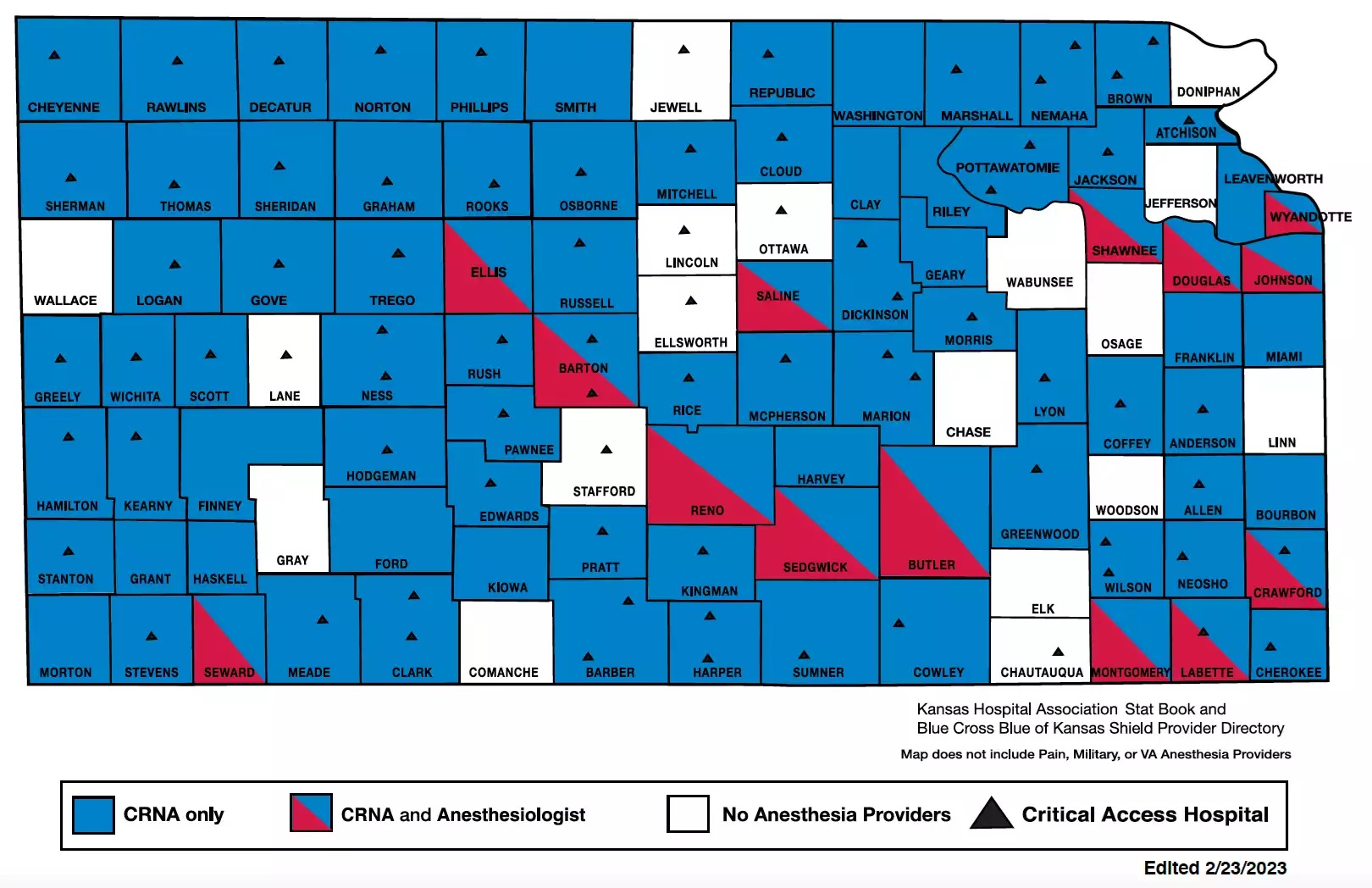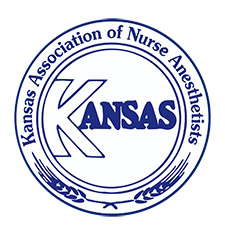The Issues
Restricting CRNA Practice Reduces Access to Care and Increases Costs
Restricting CRNA practice is contrary to the national trend toward allowing APRNs to practice to the full extent of their education and training.
CRNAs are an integral component in the fight on opioid addiction. Many CRNAS use nonsurgical and often non-opioid pain management skills to offer services to Kansans through assessment, planning, implementation, and evaluation of approaches to patient care.
Allowing CRNAs to practice to the full extent of their training and education improves access to high quality, cost-effective care, and decreases healthcare costs in Kansas. Unnecessary restrictions on CRNA practice are not cost-effective and actually increase healthcare costs. Further, imposing such restrictions on CRNA practice is not supported by published research.

Kansas Anesthesia Providers
Coverage by counties
Essential Access to Anesthesia Care
Research shows that CRNAs are the most cost-effective anesthesia providers and that there is no difference in safety between CRNAs and anesthesiologists. CRNAs provide essential access to anesthesia care, especially in rural and other medically underserved areas in our state and the rest of the United States.
Support the ability of CRNAs to provide high quality, cost-effective care to this state’s patients without unnecessary restrictions.

